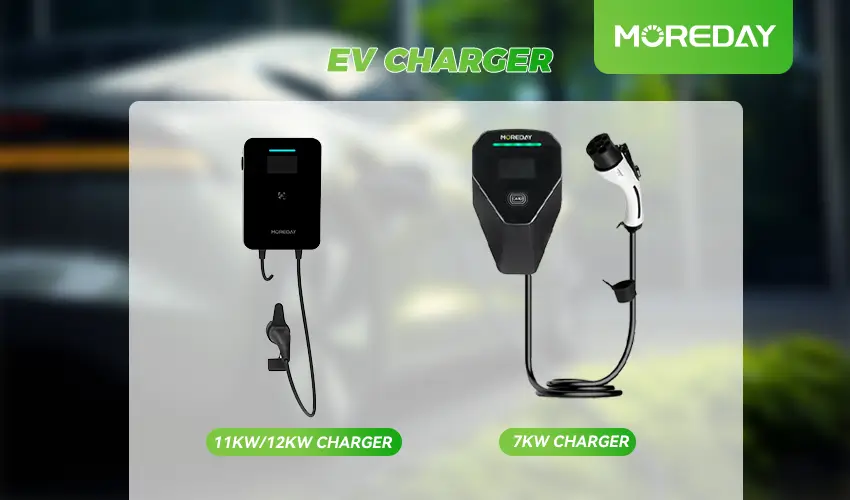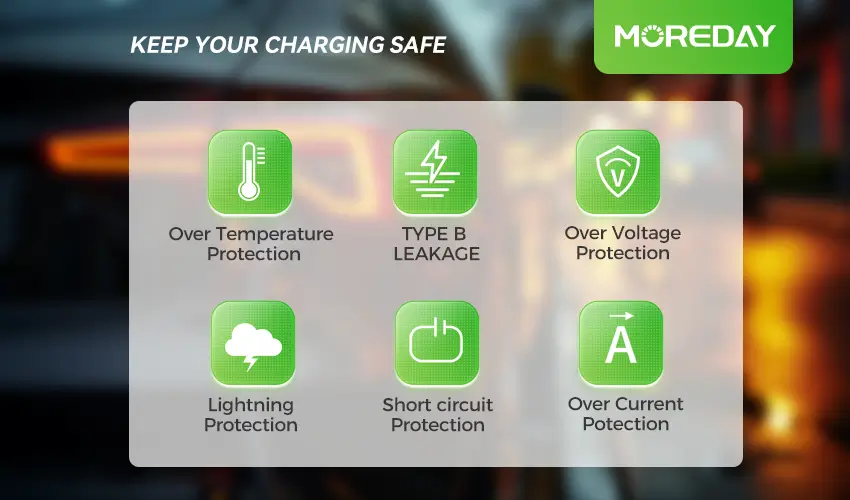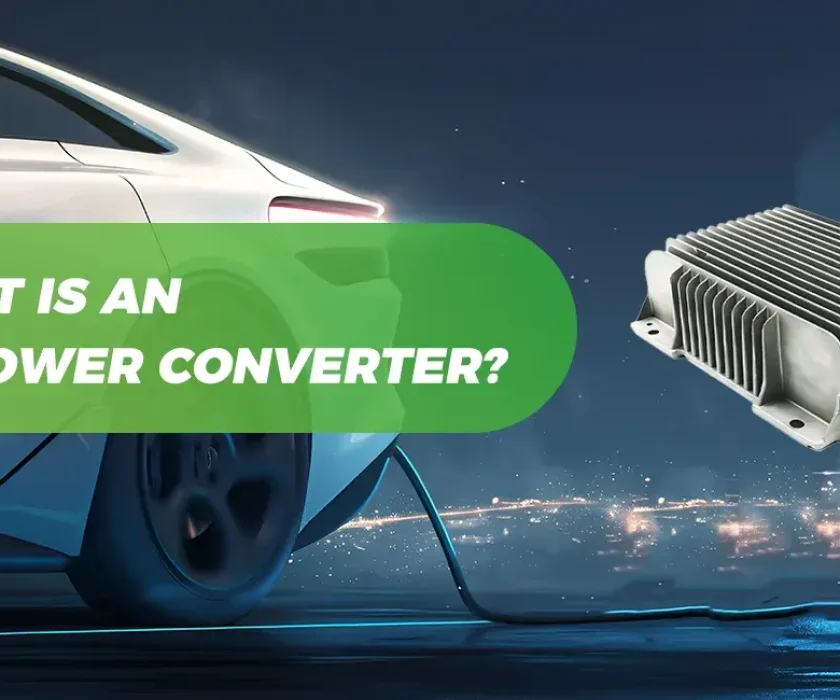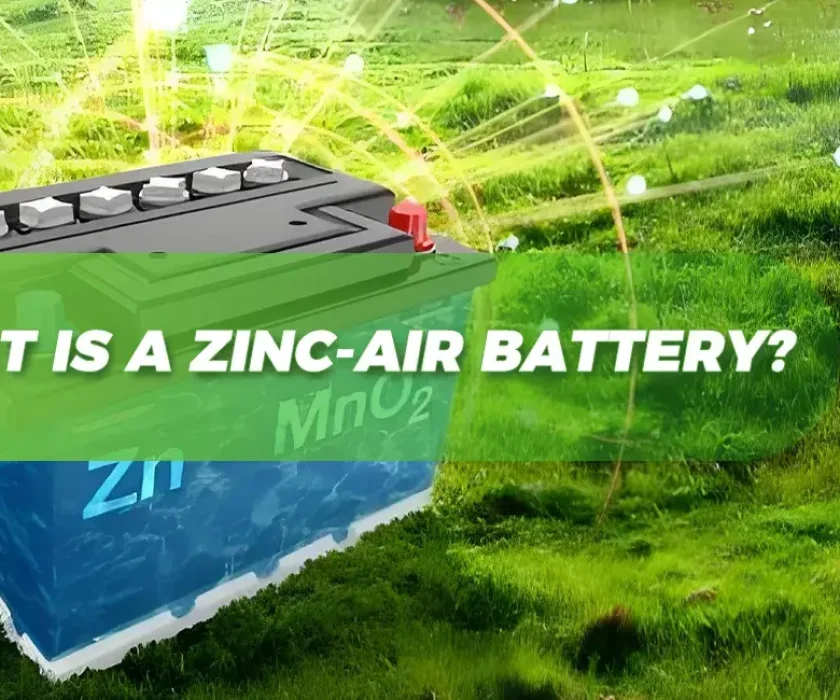Introduction
A
s the era of “buy a car and get a home ev charger for free” fades into history, many electric vehicle owners are finding themselves in need of purchasing chargers. With the high costs of original equipment manufacturer (OEM) ev chargers, attention is shifting towards third-party brands like MOREDAY. However, this shift brings new challenges, particularly in choosing the right charging power for your vehicle. In this article, we will guide you through the process of selecting the most suitable home ev charger for your needs.
Understanding Your Vehicle’s Charging Needs
Before delving into the specifics of ev chargeing, it is crucial to understand your electric vehicle’s (EV) charging requirements. The charging power of your EV determines the charging speed, but this is also influenced by the type of charging interface your vehicle supports. Typically, new energy vehicles come with two charging interfaces: an AC (alternating current) charging interface and a DC (direct current) charging interface. For home use, we focus mainly on AC ev chargers.
AC vs. DC Charging
AC Charging
AC chargers convert the AC power from the grid into the DC power required by your EV’s battery through an on-board charger. The maximum charging power your vehicle can accept is not determined by the charging pile’s power but by the specifications of the on-board charger.
DC Charging
DC charging, often used in fast-charging stations, bypasses the on-board charger, delivering DC power directly to the battery. This method is usually faster but is less common for home installations due to its higher cost and complexity.
Charging Power Options: 7kW, 11kW, and 22kW
When choosing a home ev charger, you generally have three power options: 7kW, 11kW, and 22kW. The right choice depends on your EV’s capabilities and your home’s electrical infrastructure.


7kW Charger
A 7kW charger is typically sufficient for most single-phase 220V household electrical systems. It offers a good balance between charging speed and installation complexity.
11kW Charger
An 11kW charger requires a three-phase 380V electrical system. It provides faster charging times but may not be compatible with all residential power setups.
22kW Charger
A 22kW charger is the most powerful option, suitable for three-phase systems. It offers the fastest charging times but requires significant electrical infrastructure and may be overkill for many users.
Evaluating Your Home’s Electrical System
Understanding your home’s electrical system is crucial before selecting a ev charger. In many countries, residential electricity comes in two main types: single-phase 220V and three-phase 380V.
Single-Phase 220V
Single-phase systems typically support up to 32A, allowing for a maximum charging power of around 7kW (220V x 32A). This is adequate for most standard EVs but may be slower for vehicles with larger batteries.
Three-Phase 380V
Three-phase systems can support higher currents and therefore higher charging powers. For example, a 16A three-phase system can provide up to 11kW (220V x 16A x 3), while a 32A system can deliver up to 21kW (220V x 32A x 3).
Compatibility with Your EV
It’s important to ensure that your EV’s on-board charger can handle the charging power of the charger you choose. If your vehicle only supports single-phase charging, installing a higher-powered three-phase charfer will not increase your charging speed beyond the vehicle’s limitations.
Consulting Local Authorities
Before installing a high-powered ev charger, you should consult with your local power supply bureau and community property management to confirm that your home can support the necessary electrical infrastructure. This is especially important for three-phase installations, which may not be supported in all areas.
Choosing a Reliable Third-Party Brand
When selecting a third-party charger, consider the brand’s reputation and product quality. A reliable brand offers better product quality, smarter features, and comprehensive after-sales service. Avoid low-priced options that may compromise safety and performance.
Features to Look for in a Home EV Charger
Smart Features
Modern chargers come with various smart features such as appointment charging, remote monitoring, and smart start. These features enhance convenience and efficiency.
Safety Features
Safety is paramount when dealing with electrical installations. Look for charging piles with high protection ratings (IP55 or above) and multiple safety protections, including lightning and leakage protection.


After-Sales Service
A good after-sales service system ensures that any issues can be promptly addressed. This is especially important for complex installations and high-powered systems.
Why Choose MOREDAY?
MOREDAY is a strategic partner of a world-renowned car company, offering a range of customized home ev chargers designed to meet various needs. Their products include multiple smart functions and robust safety features, ensuring reliable and efficient charging for your EV. MOREDAY also provides global installation and maintenance services, making them a trusted choice for EV owners worldwide.


Conclusion
Choosing the right home charger for your electric vehicle involves understanding your vehicle’s charging capabilities, evaluating your home’s electrical system, and selecting a reliable third-party brand. By considering these factors, you can ensure efficient and safe charging for your EV, maximizing the benefits of your investment. MOREDAY offers a range of high-quality, feature-rich ev chargers that cater to different needs, making them an excellent choice for discerning EV owners.
FAQ`s.
Q1: What is the difference between AC and DC charging?
A1: AC charging involves converting alternating current (AC) from the grid into direct current (DC) required by the electric vehicle's battery through an on-board charger. DC charging bypasses the on-board charger and delivers DC power directly to the battery, allowing for faster charging times. However, DC charging is more commonly used in public fast-charging stations rather than home installations.
Q2: What are the power options for home ev chargers and which one should I choose?
A2: The main power options for home chargers are 7kW, 11kW, and 22kW. A 7kW charger is suitable for most single-phase 220V household systems, offering a good balance of charging speed and installation simplicity. An 11kW charger requires a three-phase 380V system and provides faster charging times, while a 21kW charger, also requiring a three-phase system, offers the fastest charging but needs significant electrical infrastructure.
Q3: How do I determine the charging power my electric vehicle can handle?
A3: The maximum charging power your electric vehicle can handle is determined by the specifications of its on-board charger. Check your vehicle's manual or consult with the manufacturer to find out the supported charging power. This ensures you choose a charging pile that matches your vehicle's capabilities.
Q4: Can I install a high-powered charger even if my EV only supports lower power charging?
A5: Installing a higher-powered ev charger, such as 11kW or 22kW, will not increase your EV’s charging speed if its on-board charger only supports lower power charging. Always match the charging pile’s power to your vehicle’s capabilities to ensure efficient charging.
Q5: Why is it important to consult local authorities before installing ?
A5: Consulting local power supply bureaus and community property management ensures that your home can support the required electrical infrastructure for high-powered charging piles. This step is crucial for compliance with local regulations and avoiding potential electrical issues.
Q6: What features should I look for in a third-party charger?
A6: Look for smart features such as appointment charging, remote monitoring, and smart start. Safety features are also critical, including high protection ratings (IP55 or above) and protections against lightning and leakage. Additionally, a reliable after-sales service system is important for addressing any potential issues promptly.
Q7: Why should I choose a reputable brand like MOREDAY?
A7: Choosing a reputable brand like MOREDAY ensures better product quality, advanced smart features, and comprehensive safety protections. MOREDAY also offers global installation and maintenance services, providing peace of mind and reliable support for your home charging needs.
Q8: How does MOREDAY support electric vehicle owners?
A8: MOREDAY, as a strategic partner of a world-renowned car company, designs and produces high-quality charging piles with various smart functions and robust safety features. They offer a range of products to meet different needs and provide global installation and maintenance services, making them a trusted choice for EV owners worldwide.
Derek Ke
Hi, I’m Derek Ke, founder of Moreday.com, an expert in solar-protected electrical products and electric vehicle charging.
Over the past 15 years, we have helped nearly 500 customers (such as farms, residential, industrial, and commercial) in 60 countries solve new energy and green power problems. We aim to share more knowledge about solar power generation and new energy with everyone so that green electricity can enter thousands of households.










